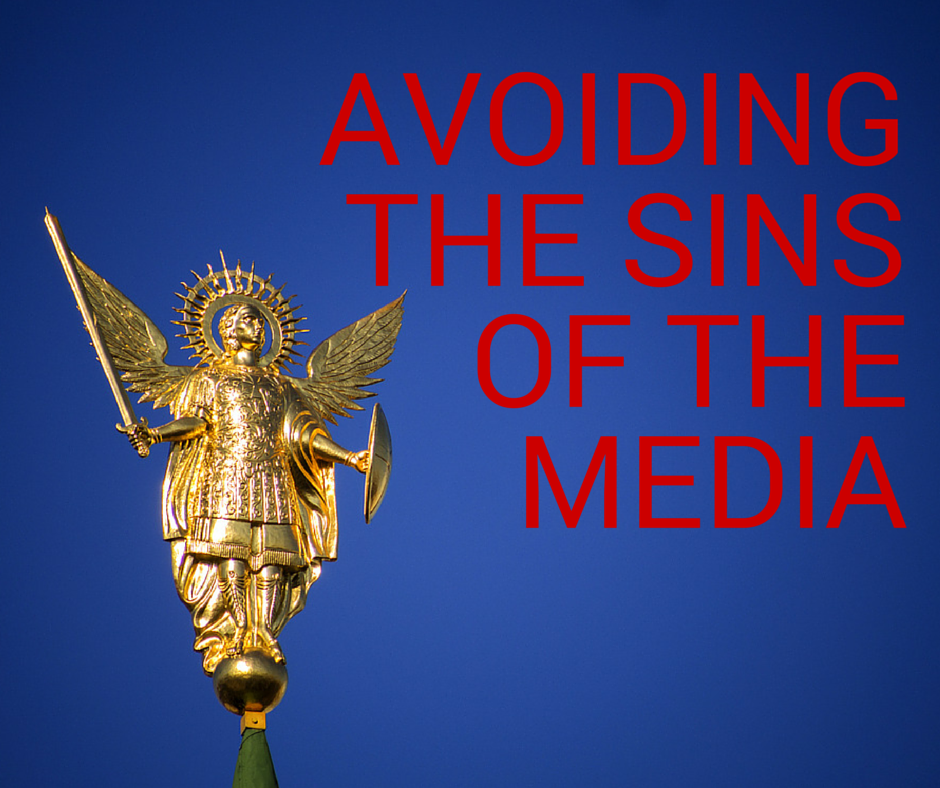
Have you sat down and watched television lately? I mean, really, truly watched it?
I’d guess that I’ve spent approximately ten hours in the last month watching TV. That figure comes from my estimated five hours of watching my favorite show, Survivor, and five hours of sitting next to my husband working while he watches football. Aside from these two tv pastimes, the bulk of my viewing happens commercial-free and on demand. This frees me from the relentless Viagra commercials and scenes on too many television series that seem to have become quite steamy.
I do view a lot of news, but I tend to do so from the app on my phone, mostly while doing chores or during late night bouts of insomnia. Come to think of it… perhaps that’s causing some of my insomnia!
But despite my lack of television viewership, I did pay attention this week when Pope Francis addressed the staff and management of TV2000, an Italian Church television broadcasting company.
In his address, Pope Francis made three main points (included below from the original press release) which are impactful for any of us who communicate:
1. Parrhesia–Courage
“the Catholic media have a very difficult mission in relation to social communication: seeking to preserve it from all that distorts and twists it for other purposes. Often communication is subject to propaganda, ideologies, political ends, or for the control of the economy or technology. The first thing that is beneficial to communication is parrhesia, or rather the courage to speak directly, to speak frankly and freely. … If, instead, we are worried about tactical aspects, our words become artificial, and we communicate nothing. Freedom also means freedom from fashions, clichés, pre-packaged formulas. … We must reawaken words. But every word has a spark of fire and life within. Reawaken that spark, so that it comes out. So this is the first task of the communicator: to reawaken the word”
Am I bold and courageous in my communication, or do I err on the side of holding back truths that I fear will make others uncomfortable? Communicating the faith takes both passion and courage. In “reawakening words”, I must strive to communicate freely but also respectfully. When passion for our message bleeds into disrespect for our intended audience, fruitful dialogue is blocked and so is reception of what we are trying to say. I see this mission as a teeter totter, a balancing act where I am both bold and committed to effective discourse in communication.
2. Filling & Closing
Secondly, he emphasized the need to avoid “filling” and “closing”; the first takes the form of “saturating our perceptions with an excess of slogans that annul our thoughts instead of setting them into motion”, whereas the second is that of seeking short cuts instead of favoring longer and more complex routes of understanding, “choosing to present an individual as if he or she could solve all our problems, or on the contrary, as a scapegoat onto whom we can discharge all our responsibilities. [It is] jumping to conclusions immediately, instead of making the effort to represent the complexity of real life”.
Am I committed to communicating the truth in my message, or am I simply looking for a “quick fix”? In an age of 140 character tweets and so many words filling the blogosphere, I must challenge myself by asking if I what I write or speak adds to the font of truth, or simply fills air. Pope Francis reminds us to avoid jumping to easy conclusions. Most good stories can’t be told in a 500 word blog post or a sixty second video clip. The truth takes time. Being effective as communicators means that we must guard our words and images cautiously, and spend them effectively in pursuit of truth.
3. Speaking to the Whole Person and Avoiding Disinformation
Francis mentioned the third mission, “speaking to the whole person … avoiding the sins of the media: disinformation, slander and defamation”. Authentic communication, he stressed, “is not concerned with attention-grabbing. … It is necessary to speak to people as a whole: to their mind and their heart, so that they know how to see beyond the immediate, beyond a present that risks being forgetful and fearful of the future”. Of these three sins, “the most insidious is disinformation, as it leads to mistakes and to believing only a part of the truth”.
Disinformation, slander, defamation? If you’ve hung out in the comboxes of Facebook or blogs, you’ve likely seen them all. Pope Francis reminds me not to write for attention but rather for authenticity. Our goal as Catholic communicators is to serve the whole person–mind, heart and soul–always with an eye towards accuracy and truth.
While his message was addressed at television professionals, this message to “avoid the sins of the media” is helpful for each of us in an age where social media enables us to reach out and share our faith in ever-growing concentric circles of influence. Proverbs 12:19 sums up our marching orders nicely:
Truthful lips endure forever,
the lying tongue, for only a moment.
Truth endures. Let’s go out and tell it.
A question for you: Are you cognizant in your use of social media of your role as a communicator? How do you seek to avoid the sins of the media?











